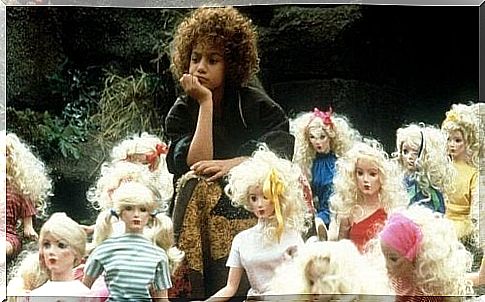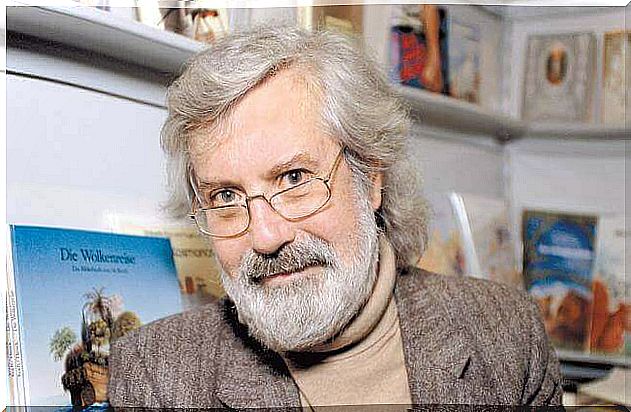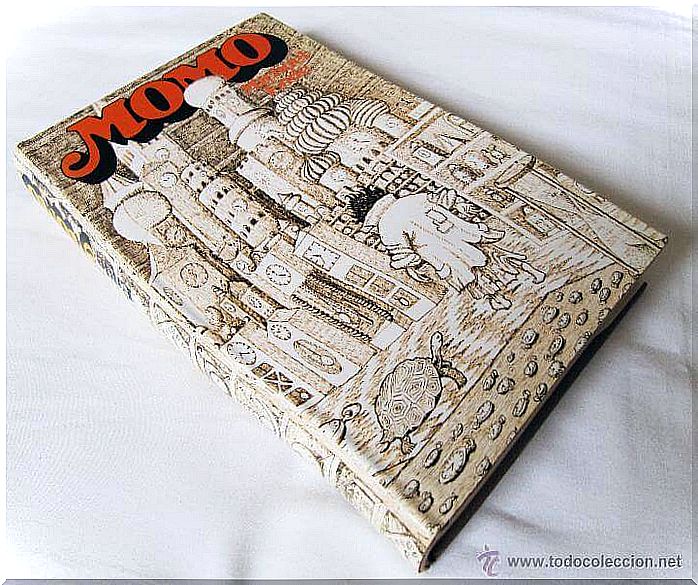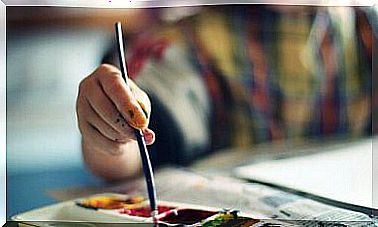8 Lessons From Momo, For Young And Old – Being Parents

Momo is a wonderful novel by Michael Ende dedicated to children. The author shows a great imagination and an immense teaching capacity. For this reason, the lessons it contains are of great value.
What is very appealing to readers, no matter what generation they are from, is the fact that the lessons are passed on in creative, interesting and fun ways, through the story of a little girl called Momo.
The book could be classified as a work that invites everyone to think. On the other hand, it can also be cataloged as a text with a strong criticism of society.
The novel tells the story of a little girl who suddenly has to face strange men. They are dressed in gray and wear hats and briefcases. Their mission is to convince people to invest their time in a kind of time bank.

Time is life
Momo severely criticizes the way we waste time. In contemporary societies, time has become a commodity that we buy and sell. It has become an additional mercantile element.
This book exposes how time can become an added element in the market. And why it is necessary not to let money determine how we use time.
In other words, the book inspires people to go deeper and use time in what fills us up and brings us non-material benefits.
Knowing how to listen, one of Momo’s lessons
Momo’s lessons are taught through examples. In the case of the importance of knowing how to listen, the story presents a character who actually knows how to do it. Indeed, he is attentive to others, without interrupting them. He also allows his interlocutors to express themselves freely.
A good hearing person is not in a hurry and seeks above all to support others with his listening. In a world where everyone wants to talk, but few listen, Momo is an ideal example.
Solidarity is an essential value
Momo is a little girl who lives in a community with limited resources. This is why everyone helps each other and shares what they have with others.
Momo herself is the first beneficiary of this aid: she has no housing and the community provides for her needs. She does not own any property and the others intervene to ensure that she obtains it. Momo, in turn, becomes the light that guides others.
Creativity and imagination
One of Momo’s most interesting lessons is that of the value of the imagination. Plus, with creativity, the ordinary can become something special. We don’t need things to feel good and have fun. What makes the difference is the ability to imagine.
“This is a lesson that many children and adolescents today should learn”
These days, unfortunately, many believe that the fun is in the material and not in the experiences. It is believed that owning an object is a guarantee of pleasure. Momo proves it’s the other way around.
Utilitarianism is not the best option
Many of Momo’s lessons aim to save what is most authentic in humans. Much of it is found outside the “useful” circuits.
In life, we don’t have to do things for profit or utility. There are free acts like imagine and laugh. It doesn’t all have to be about monetary benefits.

Satisfaction is not in consumption
The whole process of today’s society is focused on making consumption possible . The idea has spread that the greatest satisfaction is to buy and to have the money to do so.
This is why we have lost activities that do not fit into this logic. Nevertheless, Momo shows that it is, on the contrary, a path to misfortune.
Happiness is in the little things
Every day is full of little details that often go unnoticed. This is because people only focus on what they call “big business”.
In the end, nothing satisfies them. A dynamic is being built, in which more is always needed each time. At the same time, the ability to see the magic of little things is lost. It is in them that happiness is found.
Lie hurts
Repeatedly, Momo refers to the damage caused by lies. In the novel, she says that “according to her, all the misfortunes in the world are born from multitudes of lies.
Of those which have been told intentionally but also those which are involuntary, caused by haste or vagueness ”. She teaches that the most negative effect of lying is the destruction of trust.









